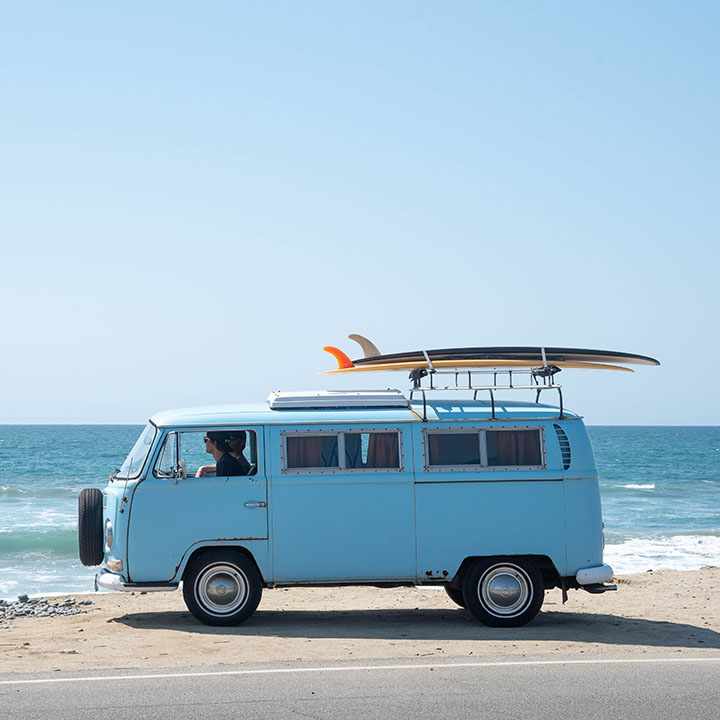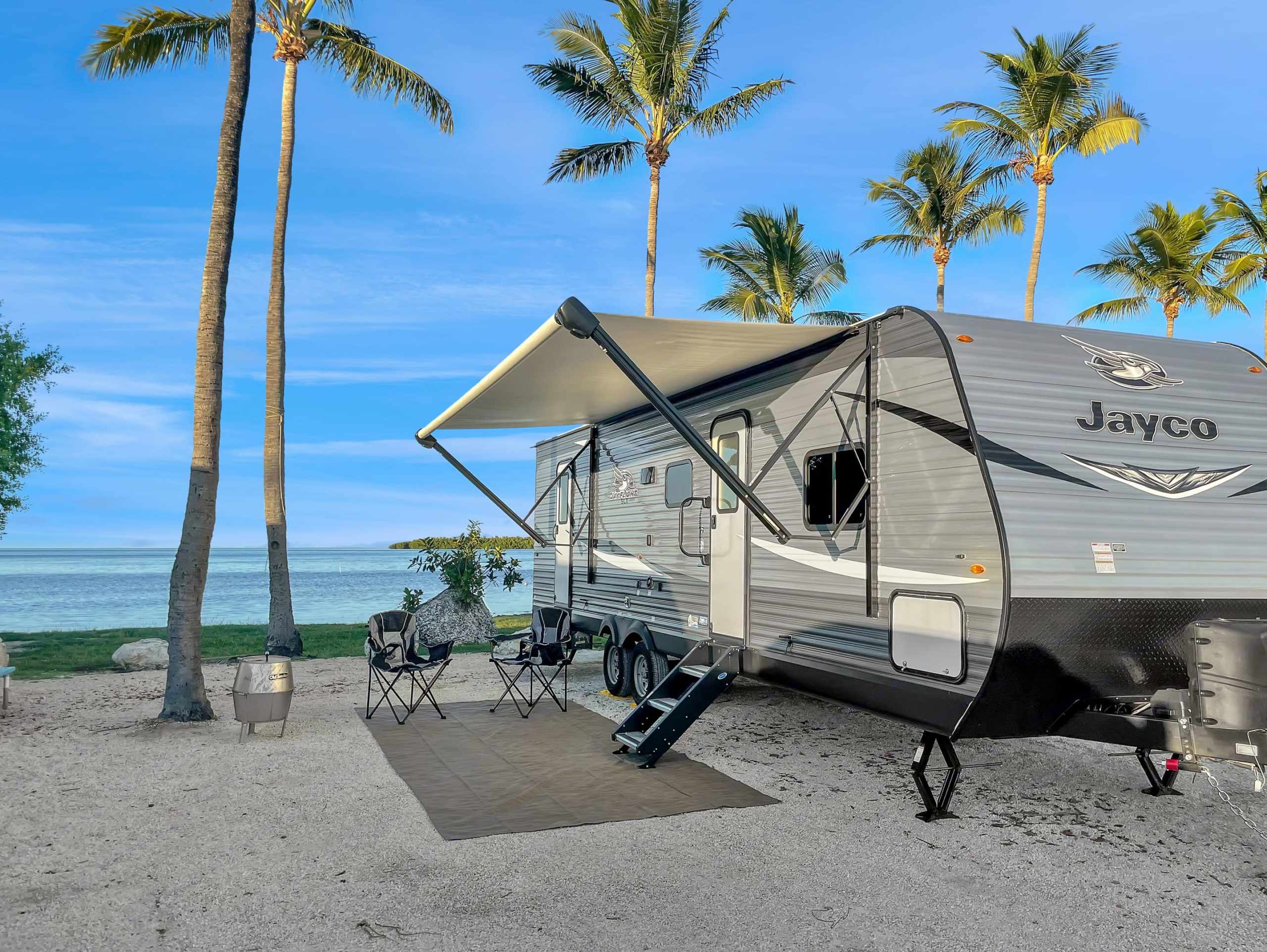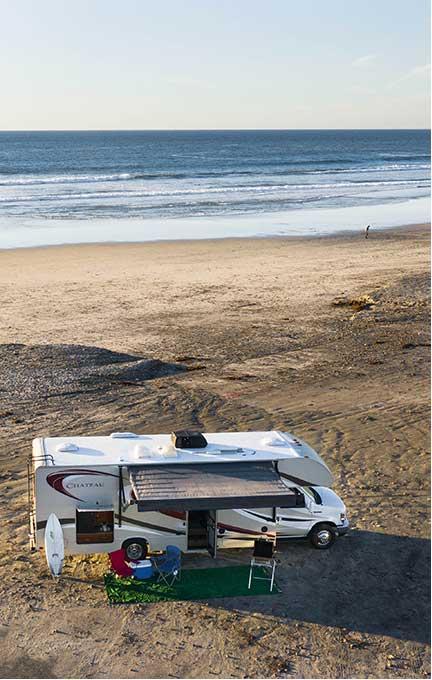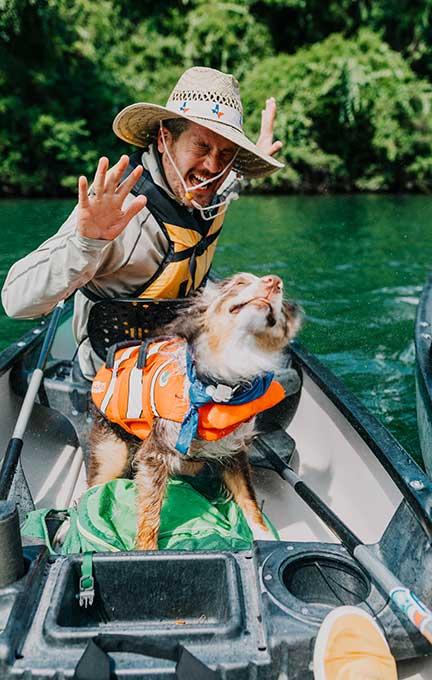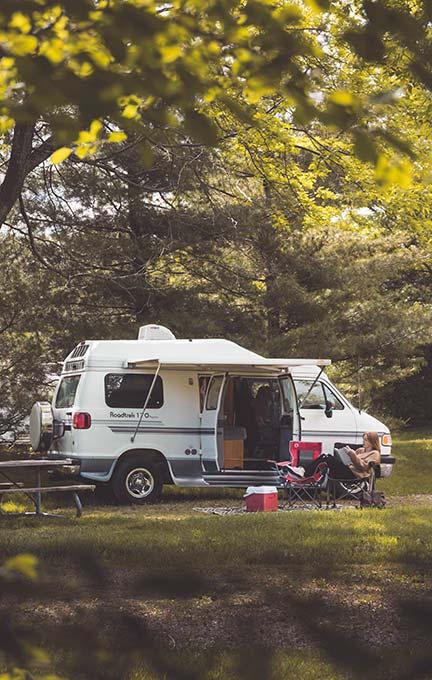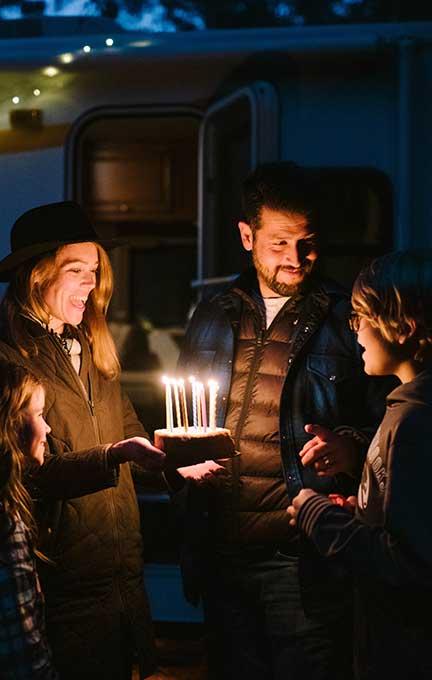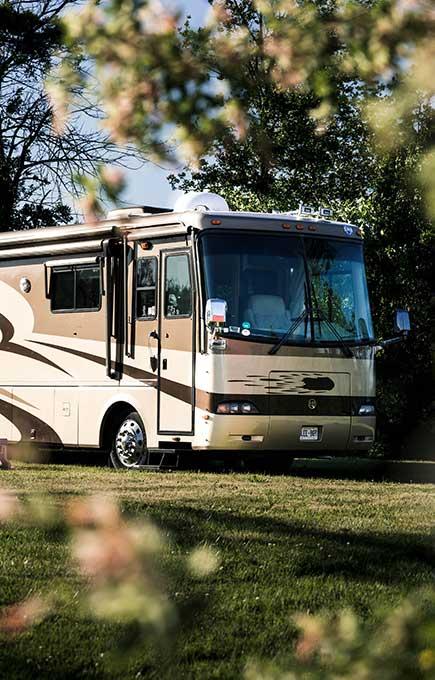RVing isn’t always smooth sailing, especially when you are a first-time RV owner, you’re going to make mistakes!
We had zero experience with RVs before purchasing our own and becoming full-timers. We thought we had researched everything, but still made some pretty dumb mistakes as first-time RVers. The good thing is, with a little research and planning ahead of time, you can avoid many of the issues we came across. I hope that sharing our experience helps you think ahead to avoid the bumps we encountered on the road. Whether you are planning to buy an RV or just rent one, follow the advice below and you’ll be a happy camper.
Try Before You Buy: RVs For Rent Near You
Here are four common RV mistakes to avoid on your road trip. You can thank us later!
Mistake #1: Forgetting Important Things on Travel Days

We learned the hard way that we needed to create a checklist of steps that are required for preparing to move locations. There are more steps with a fifth-wheel or travel trailer than with a motorhome. But regardless of what rig you have, there are action items that can be very detrimental to you and your rig if you forget to do them before taking off. These steps may seem like “second nature” and steps that you can’t imagine forgetting, but you might be surprised how often you feel rushed or anxious on travel days.
It’s easy to feel a little flustered when you’re cleaning up, strapping down, packing up, planning your route, and getting directions, all while keeping an eye on the time to ensure you’re done by checkout time. We’ve learned that doing some tasks the night before is helpful. Get your tow vehicle or rig gassed up the night before, so you don’t have to worry about stopping right away. Maybe even clean and stow or strap down items the night before as well. Give yourself plenty of time too.
Your RV checklist should include things like:
- Turn off the water pump and water heater
- Put the stabilizer legs up (we’ve forgotten this step before!)
- Close all the windows and vents
- Check the brakes and turn signals
- Check the tire pressure
- Ensure that the tailgate is up (yep, we forgot this once, too!)
You can find these checklists online or create one yourself. But make sure you actually use it and double-check it. If you’re a couple, each person should ensure that every item is completed and checked off. Then, after you pull away from your spot, one person should walk around the site and ensure you didn’t leave anything behind. There also needs to be a checklist for when you arrive at your new destination. We’ve had our fair share of those RV mistakes as well.
Mistake #2: Not Fully Understanding What You Need in the RV
We don’t necessarily regret purchasing our first RV, but we wish we would have been a little more informed and prepared. It’s so important to understand what needs you have in an RV. Think about your lifestyle and make sure that the RV you purchase fits that. We were limited in our ability to dry camp, or “boondock”, because we didn’t give any thought to certain features of our fifth wheel, such as holding tanks. To read more tips for purchasing the right RV, click here.
Mistake #3: Not Packing the Right Items
In addition to choosing the right RV for your needs, it’s also crucial that you pack all of the right items.
Need some help with a checklist?
Here’s what you’ll usually need in your RV from a general safety and preparedness standpoint.
- RV registration
- Insurance paperwork
- RV owner’s manual
- Portable generator
- Jumper cables
- Wheel blocks
- Levelers
- Tire pressure gauge
- Disposable gloves
- Tool kit
- Flashlight
- First aid kit
- Bed linens for each bed
- Sleeping bags
- Camping chairs and table
- Insect repellent
- Sunblock
- Portable phone charger
- Hiking gear
- Clothes, based on weather and daily activities
And don’t forget the RV kitchen stuff:
- Cooking utensils
- Bowls, plates, and cups
- Mixing bowls
- Pots and pans
- Measuring cups and spoons
- Knives and a cutting board
- Can/bottle opener
- Aluminum foil, plastic wrap, and food storage containers
- Dish soap
- Paper towels
- Cooking spray or oil
Mistake #4: Trusting Google Maps and Not Validating Your Route
Spoiler alert: All Stays app is the way to go.
Many of us have become accustomed to using our cell phones for directions. And because of that, we often don’t put much thought into the route that it suggests. We’ll simply type in the address and head out, usually without double-checking. You absolutely cannot do this with an RV. Our general thought was, “as long as we’re on highways, we’ll be good…truckers take those roads!”. But that’s not always the case, and it’s the roads leading to and from highways that you need to be extra careful of.
We got ourselves into a pretty stressful situation following Siri’s directions. While leaving Sedona, AZ, we were routed to a highway that went straight through a mountain. The roads were some of the windiest and narrowest that we had ever seen. On top of that, there were many low-hanging trees that were hitting the roof of our fifth wheel. It was in that moment that we realized we need to be more hands-on with our route planning.
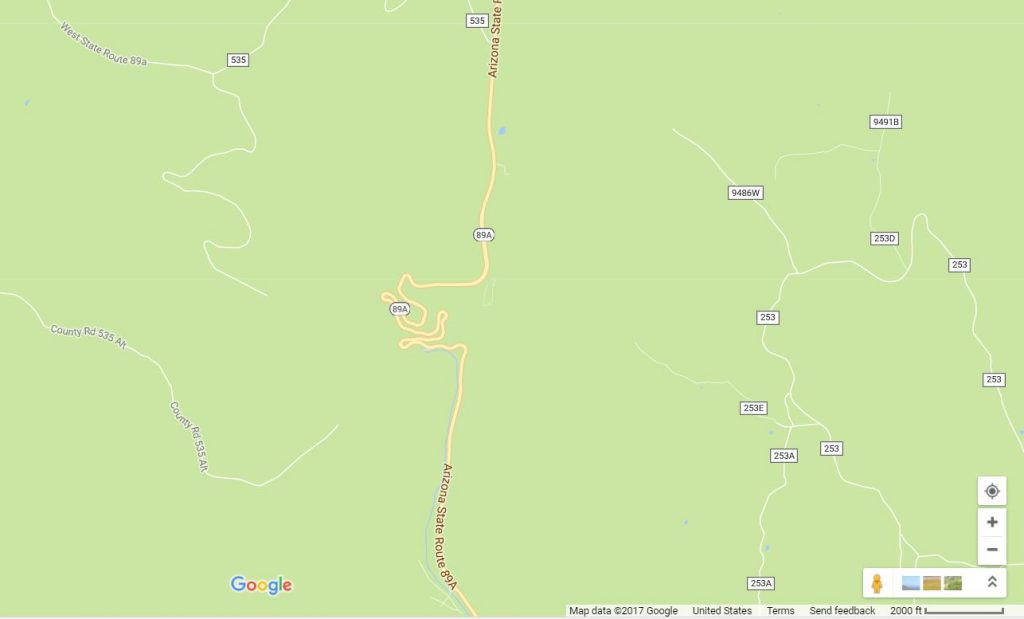
We’ve come across many low-clearance bridges and tunnels as well as roads that suddenly have weight limits with no warning. To avoid getting yourself into a dangerous situation, we suggest purchasing an RV specific GPS. You can also find apps that offer maps with clearly marked areas that have low clearance or weight restrictions. We’ve gotten in the habit of checking every road we will be taking ahead of time. We mainly use the All Stays app for this.
Mistake #5: Skipping the Practice Run Before Full-Timing
Our first time RVing was the very same day we hit the road full-time. We were fairly nervous and had just planned to “learn as we go”. Needless to say, our first day was memorable… and not in a good way. We made simple, careless RV mistakes just because of our lack of experience and the anxiety that came with that. We regretted not doing a trial run, even just for a quick overnight camping trip not far from home.
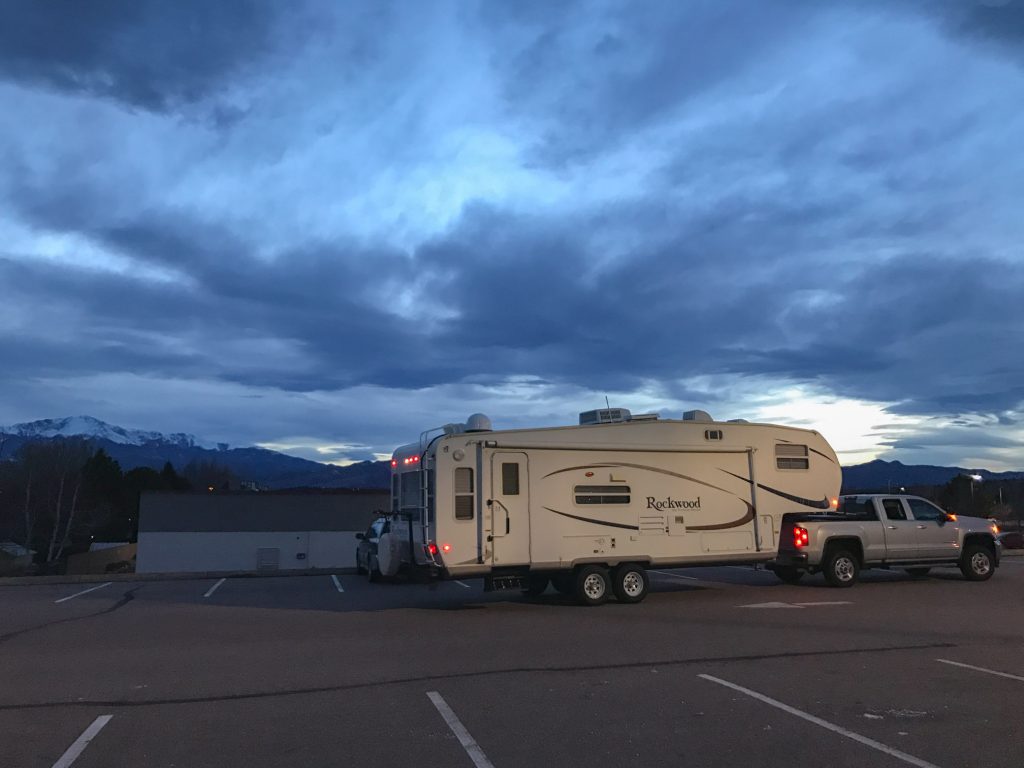
If we’d gone for a practice run, we truly believe our first-day RV mistakes wouldn’t have happened. We would’ve learned then that we needed a checklist and could’ve avoided careless errors. We also could have practiced our roles and our communication for parking. It’s really no different than playing a sport— there’s way less pressure at practice than on game day! Overall, it would have greatly increased our confidence and eased our nerves a bit. So, if you aren’t an experienced RVer, do yourself a favor and give yourself some practice time.
One of the best ways to do this is by taking a short road trip with a rental RV! Especially if you plan on going long-term RVing, it’s a good idea to use rentals to learn the ropes and what you like and dislike in an RV.
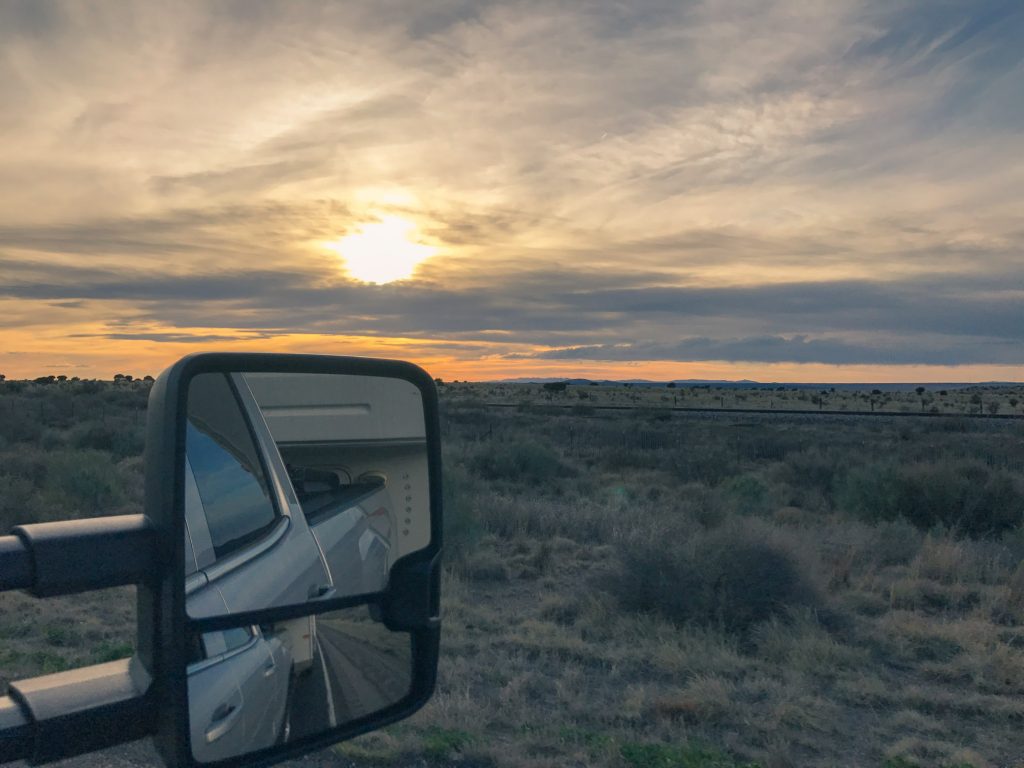
Mistake #6: Going Too Far and Too Fast
RVing is not just about the destination. It’s also about enjoying your time on the road. Going too far in one day of driving can not only leave you exhausted, but it’s also dangerous. It’s always better to break your journey down into manageable chunks and rest when you need to. Similarly, don’t try to put the pedal to the metal in your RV. Take it slow and keep it safe. Driving at higher-than-intended speeds trying to race to your destination can cause unsafe conditions like trailer sway.
Plus, you may miss the exit to see the World’s Second Largest Rocking Chair! Taking things slow allow you to enjoy your surroundings and arrive in one piece.
More Common RV Mistakes
The mistakes above are unfortunate, but they are far from the only RVing mistakes you might make. Below are some more common mistakes that new RVers tend to make.
Overpacking
A classic beginner mistake is overpacking. While it’s tempting to bring all the comforts of home, space and weight are premium in an RV. Every item adds up in weight, which can lead to excess fuel consumption, potential safety issues, and even tire or axle damage. The best approach is to focus on what you really need and try to stick to versatile, multipurpose items. Think carefully about clothing and kitchen supplies, opting for compact versions whenever possible. If you find yourself overloading the RV, it’s a good time to reassess what can be left behind.
Underestimating the Importance of Maintenance
RV maintenance isn’t just about keeping things clean; it’s essential for safety and longevity. A mistake many new RVers make is neglecting basic maintenance tasks like tire pressure checks, inspecting seals, and cleaning the roof. Failing to keep up with these can lead to costly repairs down the line, and worse, breakdowns while you’re on the road. Make a maintenance checklist, and adhere to it regularly. Some items, like checking tire pressure, should be done before every trip.
Ignoring the Weather
Unlike a traditional home, an RV is vulnerable to extreme weather conditions. Many new RVers forget to monitor weather changes, which can be dangerous. Storms, high winds, and freezing temperatures can cause damage to the RV’s exterior, plumbing, and even stability. Before each trip, check the weather forecast for your planned route and destination. When winter hits, remember to winterize your RV to prevent water lines from freezing, which can lead to expensive repairs.
Underestimating Parking Needs
Parking is a huge consideration for RVers, especially with larger rigs. Many assume they’ll be able to park at any location or rest stop, only to find they don’t have the clearance or space. Research each parking area in advance, and practice parking and backing up if you’re new to maneuvering a large vehicle.
Try It For Yourself
I really hope this post gives you practical tips for avoiding careless and dumb mistakes during your upcoming RV travels. Now go make that checklist, buy an RV-specific GPS, and schedule in some practice before your maiden voyage!
Try Before You Buy: RVs For Rent Near You
This post contains affiliate links.
